market analysis of fake IDs
Table of Contents:
- Introduction
- Product Overview
2.1 What are Fake IDs?
2.2 Types of Fake IDs
2.3 Features and Quality of Fake IDs - Market Analysis
3.1 Historical Market Overview
3.2 The Growth of the Fake ID Market
3.3 Key Market Drivers
3.4 Geographical Insights
3.5 Regulatory Framework - Consumer Insights and Target Audience
4.1 Age Demographics
4.2 Motivations Behind Purchasing Fake IDs
4.3 Behavioral Patterns of Fake ID Buyers
4.4 Social and Economic Factors Influencing Demand - Competitor Landscape
5.1 Key Players in the Market
5.2 Pricing Strategies
5.3 Innovation in the Fake ID Market - Risks and Challenges
6.1 Legal Risks
6.2 Ethical Considerations
6.3 Technological Countermeasures - The Future of Fake IDs
7.1 Trends and Opportunities
7.2 Digital Transformation and Impact on Fake ID Market - Conclusion
- References
1. Introduction
In a world driven by identity verification, the market for fake identification documents, commonly referred to as "fake IDs," has experienced steady growth and evolution. These counterfeit documents are sought after by consumers who desire access to restricted spaces, services, or privileges that they would not otherwise qualify for. From minors attempting to enter clubs or purchase alcohol to individuals seeking anonymity, fake IDs serve a variety of purposes across different segments of society. The primary objective of this article is to analyze the market for fake IDs, offering insight into product characteristics, consumer behavior, and broader market dynamics. We will also delve into the regulatory landscape and risks associated with both the production and possession of these illegal documents.
The underground economy surrounding fake IDs is often shrouded in secrecy due to its illegal nature. However, the increasing digitalization of society has fueled the growth of the fake ID market, making it easier than ever for buyers to obtain counterfeit identification from online sources. This article provides a comprehensive analysis of this niche yet complex market, evaluating its structure, growth drivers, and potential challenges.
2. Product Overview
2.1 What are Fake IDs?
Fake IDs refer to counterfeit identification documents that imitate official forms of identification issued by government entities, such as driver’s licenses, passports, or student IDs. These documents are typically used to bypass legal restrictions, gain access to age-restricted services, or conceal one’s true identity.
Fake IDs often feature the same elements as genuine IDs, including photographs, personal details (name, date of birth, address), barcodes, magnetic stripes, and holographic security features. Due to advances in technology, the quality and sophistication of fake IDs have increased significantly, making them more difficult to detect.
2.2 Types of Fake IDs
The market for fake IDs offers various types, depending on the level of authenticity required by the buyer. Some of the common types include:
Basic Fake IDs: These are rudimentary and often created using basic software tools. They are typically sold at lower prices but may lack intricate security features like holograms or UV markings.
High-Quality Fake IDs: These are more expensive and closely resemble official identification documents. They are usually created using advanced printing techniques and include various security elements to evade detection.
Novelty IDs: These fake IDs are sold under the guise of being "for entertainment purposes only." They resemble real IDs but may contain deliberately incorrect or humorous details.
2.3 Features and Quality of Fake IDs
Fake IDs vary greatly in quality, depending on the methods used for production. Higher-end counterfeit IDs are difficult to distinguish from legitimate ones, as they replicate complex security features such as:
Holograms and Watermarks: These features make the ID look more legitimate under scrutiny, particularly by security personnel or scanners.
Magnetic Strips and Barcodes: Authentic IDs often include magnetic strips or barcodes that can be scanned for verification. Some fake IDs incorporate these features to fool scanning equipment.
Raised Lettering and Embossing: Tactile features like raised lettering can also be mimicked in high-quality fakes.
The technological sophistication of fake IDs has increased over the years, making them more durable, realistic, and effective in bypassing security measures.
3. Market Analysis
3.1 Historical Market Overview
The history of fake IDs dates back decades, but their proliferation began to rise in the late 20th century with the advent of more sophisticated printing technologies and access to design software. Traditionally, fake IDs were produced using simple techniques such as photocopying or basic laminations, but over time, counterfeiters began adopting methods used by official document makers to produce more convincing fakes.
3.2 The Growth of the Fake ID Market
The market for fake IDs has seen a substantial rise in recent years, fueled by technological advancements and growing demand from various consumer segments. In the digital era, online marketplaces and the dark web have significantly expanded the reach of fake ID providers, making it easier for buyers to find counterfeit identification from around the globe.
The ease of online access, combined with growing consumer demand for identity modification tools, has led to market expansion. The rise of cryptocurrency has also played a pivotal role, enabling secure and anonymous transactions, which in turn has fueled the growth of this illicit market.
3.3 Key Market Drivers
Several factors contribute to the steady growth of the fake ID market:
Demand from Minors: The largest segment of fake ID buyers comprises minors who seek to circumvent age restrictions, particularly to purchase alcohol or gain entry into age-restricted venues like bars or clubs.
Globalization and Travel: Increased international travel and the need for identity concealment have fueled the demand for fake passports and visas.
E-commerce and Cryptocurrency: Online platforms and anonymous payment methods (e.g., Bitcoin) have facilitated the buying and selling of fake IDs.
3.4 Geographical Insights
Different regions around the world experience varying levels of demand for fake IDs. In countries with strict legal drinking ages or entry restrictions (such as the United States), demand is particularly high among college students and teenagers. Conversely, in countries where identification checks are more lenient, the demand may be lower.
Geographically, regions with a strong nightlife culture and high levels of regulation are hotspots for fake ID demand. For example, cities like New York, Los Angeles, and London have large markets for fake IDs.
3.5 Regulatory Framework
The legal ramifications for creating, distributing, or possessing fake IDs vary significantly across jurisdictions. In many countries, the production and use of counterfeit identification documents is a criminal offense, punishable by fines, imprisonment, or both. The United States, for instance, enforces strict penalties for both the creators and users of fake IDs, especially when these documents are used to commit other offenses such as fraud or underage drinking.
Governments around the world have adopted various strategies to combat the production and use of fake IDs. These measures include the use of biometric data, holographic technology, and machine-readable zones (MRZ) to make identification documents more difficult to replicate.
4. Consumer Insights and Target Audience
4.1 Age Demographics
The primary buyers of fake IDs tend to be young people, particularly those between the ages of 16 and 24. This demographic seeks to circumvent age restrictions for various purposes, such as accessing nightclubs, purchasing alcohol, or renting cars. College students, in particular, represent a significant portion of the market, with many seeing fake IDs as a rite of passage into adulthood.
4.2 Motivations Behind Purchasing Fake IDs
Several factors motivate individuals to purchase fake IDs:
Social Pressures: Peer influence and the desire to participate in activities with older friends often drive young people to seek out fake IDs.
Access to Restricted Services: Many minors are motivated by the need to access age-restricted services like alcohol, tobacco, and gambling.
Personal Anonymity: For others, the desire to protect their privacy or assume a new identity fuels the demand for fake IDs.
4.3 Behavioral Patterns of Fake ID Buyers
Behaviorally, fake ID buyers often exhibit calculated decision-making, carefully selecting providers based on price, quality, and reviews. They typically operate in secretive networks or forums, relying on recommendations from friends or online reviews to assess the credibility of suppliers.
4.4 Social and Economic Factors Influencing Demand
Economic status also plays a role in the fake ID market. Consumers with higher disposable incomes may opt for more expensive, high-quality fake IDs that are harder to detect. In contrast, those with fewer resources might settle for lower-tier products that are more likely to be identified as fakes.
Additionally, the allure of breaking societal rules or gaining access to exclusive privileges can often drive demand. This demand is heightened in cultures that place high value on social activities and personal freedoms.
5. Competitor Landscape
5.1 Key Players in the Market
Despite the illegal nature of the fake ID market, it is dominated by several key players, most of whom operate through anonymous or semi-anonymous online platforms. These producers and distributors are often difficult to track, given their reliance on encrypted communication methods and cryptocurrency transactions.
5.2 Pricing Strategies
Fake ID providers generally adopt varied pricing strategies based on the quality of the product. Basic fake IDs can range from $50 to $100, while higher-end, nearly undetectable fakes can cost upwards of $200 to $500.
5.3 Innovation in the Fake ID Market
To stay ahead of law enforcement and security advancements, counterfeiters continuously innovate. From the use of 3D printing to integrating new security features like holograms, the market is always evolving.
6. Risks and Challenges
6.1 Legal Risks
One of the primary challenges in the fake ID market is the legal risk associated with both buying and selling counterfeit documents. In many jurisdictions, penalties are severe and include significant fines and jail time.
6.2 Ethical Considerations
The ethical implications of supporting the fake ID market are also significant, as these documents can be used for more nefarious purposes like fraud or human trafficking.
6.3 Technological Countermeasures
Governments and institutions have responded to the rise of fake IDs by implementing new technologies like biometric verification, blockchain-based ID systems, and holographic security measures that make it more difficult to produce convincing counterfeit documents.
7. The Future of Fake IDs
7.1 Trends and Opportunities
The fake ID market is likely to continue evolving with advances in both technology and consumer demand. The integration of AI and deepfake technology could pose new challenges for law enforcement.
7.2 Digital Transformation and Impact on Fake ID Market
The digitalization of identity verification systems presents both opportunities and risks for the future of fake IDs. Blockchain technology and biometric systems could significantly alter the landscape by making it more difficult to create convincing fakes.
8. Conclusion
The market for fake IDs, while illegal, continues to grow due to technological advancements and persistent consumer demand. This market analysis provides a comprehensive view of the forces shaping the industry, the types of consumers who participate, and the broader societal implications of this illicit trade. As technology advances, both counterfeiters and law enforcement will need to adapt to the new landscape of identity verification and fraud prevention.
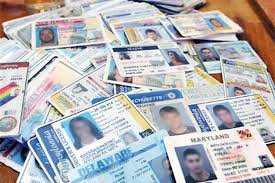 Delaware ID Features
Delaware ID Features
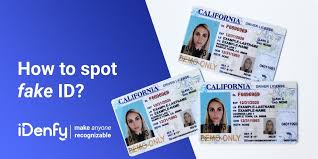 fake ID purchase guide
fake ID purchase guide
 Fake ID Buying Guide
Fake ID Buying Guide
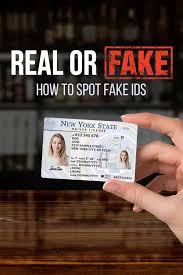 benefits of fake ID
benefits of fake ID
 Indiana Fake ID
Indiana Fake ID
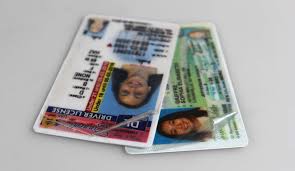 Kansas Fake ID
Kansas Fake ID
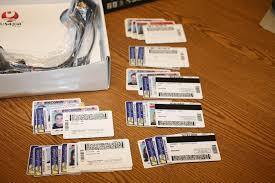 Maryland Fake ID
Maryland Fake ID
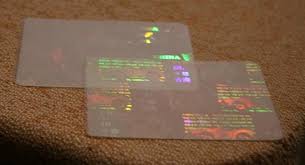 Massachusetts Fake ID
Massachusetts Fake ID
